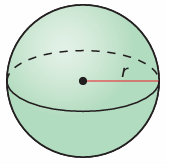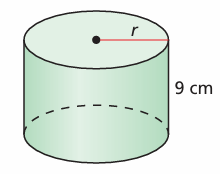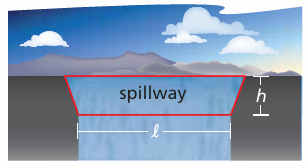FIND THE INDICATED NTH ROOTS OF A
Subscribe to our ▶️ YouTube channel 🔴 for the latest videos, updates, and tips.
In general, for an integer n greater than 1, if bn = a, then b is an nth root of a. An nth root of a is written as n√a , where n is the index of the radical.
Let n be an integer (n > 1) and let a be a real number.
If n is an even number
|
If a < 0 If a = 0 If a > 0 |
No real nth roots One real nth root n√0 = 0 Two real nth roots ±n√a = ±a1/n |
If n is an odd number
|
If a < 0 If a = 0 If a > 0 |
One real nth root n√a = a1/n One real nth root n√0 = 0 One real nth roots n√a = a1/n |
Find the indicated real nth root(s) of a.
Problem 1 :
If n = 3, a = −216
Solution :
We can write the given details as cube root of -216. That is
= ∛-216
= ∛-6 ⋅ (-6) ⋅ (-6)
= -6
Problem 2 :
n = 4, a = 81
Solution :
Here n is even. So, we will have two solutions.
We can write the given details as fourth root of 81. That is,
= ∜81
= ∜(3 ⋅ 3 ⋅ 3 ⋅ 3)
= ±3
Problem 3 :
n = 4, a = 16
Solution :
Here n is even. So, we will have two solutions.
We can write the given details as fourth root of 81. That is,
= ∜16
= ∜(2 ⋅ 2 ⋅ 2 ⋅ 2)
= ±2
Problem 4 :
n = 2, a = −49
Solution :
Here n is even and value of a is less than 0. So, it will have no real roots.
Problem 5 :
n = 3, a = −125
Solution :
Here n is odd and value of a is less than 0.
= ∛-125
= ∛-5 ⋅ (-5) ⋅ (-5)
= -5
Problem 6 :
n = 5, a = 243
Solution :
Here n is odd and value of a > 0.
= 5th root (243)
= 5th root (3 ⋅ 3 ⋅ 3 ⋅ 3 ⋅ 3)
= 3
Problem 7 :
Evaluate each expression.
a. 163/2 b. 32−3/5
Solution :
a. 163/2
= (24)3/2
16 = 2
= 24 x (3/2)
= 22 x 3
= 26
= 64
So, the value of 163/2 is 64.
b. 32−3/5
32 = 2 x 2 x 2 x 2 x 2
= 25
32−3/5 = (25)−3/5
= 25(-3/5)
= 2-3
= 1/23
= 1/8
Problem 8 :
Find the real solution(s) of
(a) 4x5 = 128 and (b) (x − 3)4 = 625
Solution :
(a) 4x5 = 128
Dividing by 4
x5 = 128/4
x5 = 25
Since the powers are the same, we
x = 5
(b) (x − 3)4 = 625
(x − 3) = fourth root (625)
x - 3 = fourth root (5 x 5 x 5 x 5)
x - 3 = 5
x = 5 + 3
x = 8
Problem 9 :
Find the radius of the figure with the given volume
a) V = 216 ft3

Solution :
Volume of sphere = (4/3) πr3
(4/3) πr3 = 216
r3 = 216 (3/4) x 1/π
r3 = 51.59
r = ∛51.59
r = 3.72
So, the required radius is 3.72 cm
b) V = 1332 cm3

Solution :
Volume of cylinder= πr2h
1332 = πr2(9)
1332/9 = πr2
148 = πr2
148/3.14 = r2
r2 = 47.13
r = √47.13
r = 6.86
So, the radius of the cylinder is 6.86 cm.
Problem 10 :
A weir is a dam that is built across a river to regulate the flow of water. The flow rate Q (in cubic feet per second) can be calculated using the formula Q = 3.367ℓh3/2, where ℓ is the length (in feet) of the bottom of the spillway and h is the depth (in feet) of the water on the spillway. Determine the flow rate of a weir with a spillway that is 20 feet long and has a water depth of 5 feet.

Solution :
Q = 3.367ℓh3/2
Here l = 20 feet and h = 5 feet
Q = 3.367(20) (5)3/2
= 3.367(20) (125)1/2
= 67.34 (125)1/2
= 67.34√125
= 67.34(11.18)
= 752.86 cubic feet per second
Problem 11 :
A hospital purchases an ultrasound machine for $50,000. The hospital expects the useful life of the machine to be 10 years, at which time its value will have depreciated to $8000. The hospital uses the declining balances method for depreciation, so the annual depreciation rate r (in decimal form) is given by the formula
r = 1 − [S/C]1/n
In the formula, n is the useful life of the item (in years), S is the salvage value (in dollars), and C is the original cost (in dollars). What annual depreciation rate did the hospital use?
Solution :
The useful life is 10 years, so n = 10. The machine depreciates to $8000, so S = 8000. The original cost is $50,000, so C = 50,000. So, the annual depreciation rate is
r = 1 − [8000/50000]1/10
r = 1 - (0.16)0.1
= 1 - 0.83
= 0.167
Converting into percentage, we get
About 16.7%.
Subscribe to our ▶️ YouTube channel 🔴 for the latest videos, updates, and tips.
Recent Articles
-
Finding Range of Values Inequality Problems
May 21, 24 08:51 PM
Finding Range of Values Inequality Problems -
Solving Two Step Inequality Word Problems
May 21, 24 08:51 AM
Solving Two Step Inequality Word Problems -
Exponential Function Context and Data Modeling
May 20, 24 10:45 PM
Exponential Function Context and Data Modeling